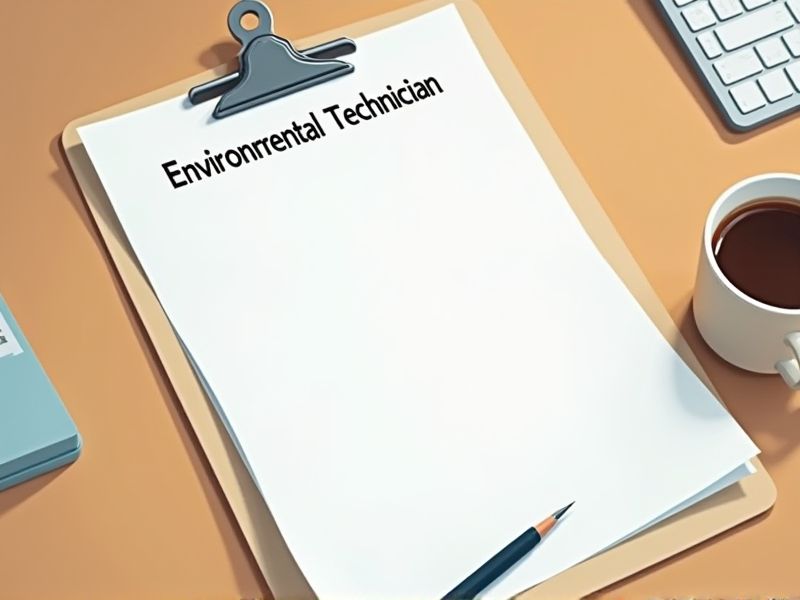
Environmental Remediation Technicians are tasked with handling and disposing of hazardous materials, a process that requires specialized knowledge to prevent environmental and health risks. Certifications ensure that these technicians are well-versed in industry regulations and best practices. Acquiring the right qualifications also helps in maintaining compliance with legal standards for pollution control and site safety. Key certifications for an Environmental Remediation Technician include HAZWOPER, asbestos handling, and lead removal credentials.
OSHA 40-Hour HAZWOPER Certification
Environmental Remediation Technicians often encounter hazardous substances that require specialized handling, and the OSHA 40-Hour HAZWOPER certification provides essential training for working safely in such conditions. Exposure to hazardous materials poses significant health risks, prompting the need for thorough understanding and compliance with safety protocols outlined in the certification. Regulatory bodies demand certified professionals to ensure workplace safety and adherence to federal guidelines. Possession of this certification can enhance a technician's employability and credibility in the environmental remediation field.
EPA Hazardous Waste Operations Training Certification
The EPA Hazardous Waste Operations Training Certification equips Environmental Remediation Technicians with necessary skills to safely handle hazardous materials, reducing potential health risks. Regulatory compliance ensures technicians operate under legal guidelines, avoiding potential fines or legal complications. Certification enhances response efficacy to hazardous situations, minimizing environmental impact through informed actions. Employers often require this certification to maintain industry standards and trust, contributing to both safety and reputation.
OSHA 10-Hour General Industry Safety Certification
The OSHA 10-Hour General Industry Safety Certification is crucial for Environmental Remediation Technicians to understand potential workplace hazards and ensure compliance with safety regulations. This certification helps reduce the risk of accidents and injuries by educating technicians on proper safety practices and protocols. With a focus on hazard identification and prevention, technicians can effectively protect both themselves and the environment. Proper safety training fosters a culture of safety and responsibility, promoting long-term health and efficiency in remediation projects.
Asbestos Abatement Certification
Asbestos abatement certification is indispensable for environmental remediation technicians due to its role in ensuring worker and public safety by minimizing exposure to hazardous asbestos fibers. Certification equips technicians with the necessary skills to effectively and legally handle, remove, and dispose of asbestos-containing materials, in compliance with regulatory standards. Possessing this certification reduces the risk of contamination and potential health issues such as asbestosis, lung cancer, and mesothelioma in both workers and the community. Employers and regulatory bodies often require certification to confirm adherence to legal and industry standards, which enhances the credibility and professionalism of remediation projects.
Underground Storage Tank (UST) Operator Certification
UST Operator Certification is necessary for environmental remediation technicians because it equips them with crucial knowledge on managing and preventing leaks from underground storage tanks, which can significantly contaminate soil and groundwater. Certification ensures that technicians understand regulatory compliance, minimizing the risk of legal liabilities for their employers and maintaining public safety. It also provides the skills needed to efficiently monitor and maintain UST systems, reducing long-term environmental impacts and remediation costs. By being certified, technicians are better prepared to identify and address potential environmental hazards, directly contributing to effective environmental protection and sustainability efforts.
Confined Space Entry Certification
Confined Space Entry Certification equips environmental remediation technicians with the necessary skills to safely navigate and work within restricted spaces. Such spaces often contain hazardous atmospheres or pose risks due to limited access and egress routes. A comprehensive understanding of potential dangers and safety protocols reduces the risk of incidents and health hazards. Certification ensures compliance with regulatory standards, fostering safer work environments and minimizing liability for employers.
EPA Lead Renovation, Repair and Painting (RRP) Certification
The EPA Lead Renovation, Repair, and Painting (RRP) Certification is needed because it ensures that technicians are trained to safely handle lead-based materials, reducing the risk of lead poisoning in environments. Compliance with this certification is legally required for those working in facilities built before 1978, thereby preventing potential health liabilities. It educates technicians on efficient containment and cleanup procedures, which is crucial for maintaining public health standards. This certification enhances the credibility and marketability of technicians in the environmental remediation field.
Phase I Environmental Site Assessment (ESA) Certification
Phase I Environmental Site Assessment (ESA) Certification is required for Environmental Remediation Technicians because it provides them with the essential skills to identify potential environmental liabilities on a property. This certification ensures that technicians can effectively assess historical uses and potential contaminant sources, a crucial initial step in the remediation process. Regulatory bodies often mandate such assessment as a precondition to approving further remediation activities, thus ensuring compliance with environmental laws. Possessing this certification enhances a technician's credibility, opening more opportunities for work involving environmental cleanups.
Certified Hazardous Materials Manager (CHMM)
An Environmental Remediation Technician deals with the cleanup and management of hazardous materials, so having a Certified Hazardous Materials Manager (CHMM) ensures proper handling, which lowers the risk of contamination. CHMM certification provides specialized knowledge in regulatory compliance, making the remediation process more efficient and lawful. The credibility and trust a CHMM brings can enhance stakeholder confidence in the remediation project's safety and effectiveness. With the complexity of hazardous waste regulations, a CHMM offers the expertise needed to navigate legal and environmental challenges effectively.
Certified Environmental Professional (CEP)
Organizations prioritize hiring Certified Environmental Professionals (CEP) for environmental remediation technicians due to regulatory compliance requirements. The specialized knowledge of CEPs enables identifying and mitigating environmental hazards, directly leading to safer remediation practices. Having a CEP on staff reassures stakeholders and clients of the high standard of environmental responsibility being maintained. Environmental remediation projects managed by CEPs often see improved efficiency and cost-effectiveness, minimizing unforeseen risks and associated expenses.
Summary
When you acquire certifications as an Environmental Remediation Technician, you enhance your job prospects and credibility in the field. The specialized skills and knowledge validated through these certifications likely lead to higher earning potential. Employers often prioritize certified technicians for complex and high-stakes projects, increasing your job security. Continuous professional development through certifications keeps you updated with industry regulations and best practices, improving project efficiency and safety.
